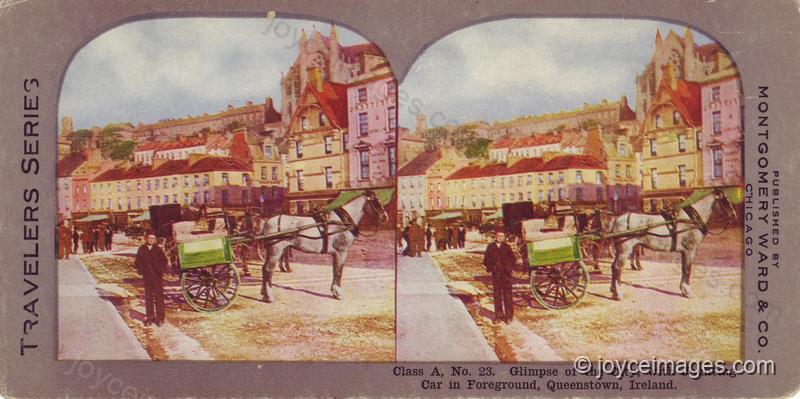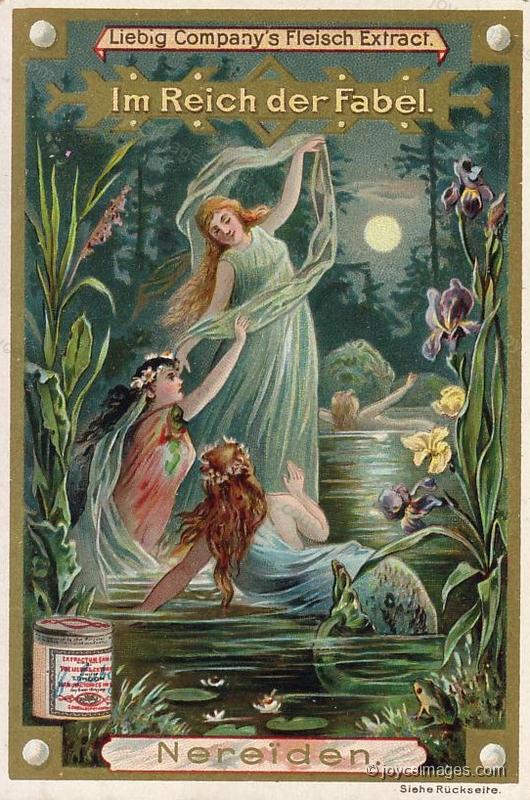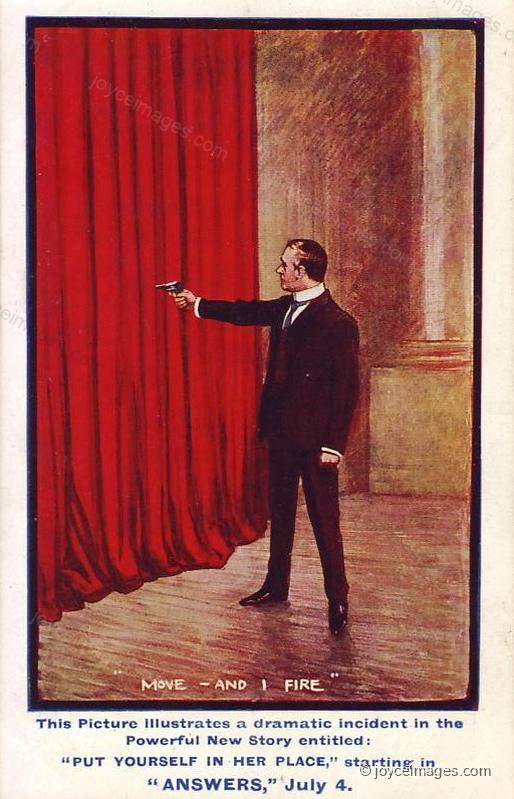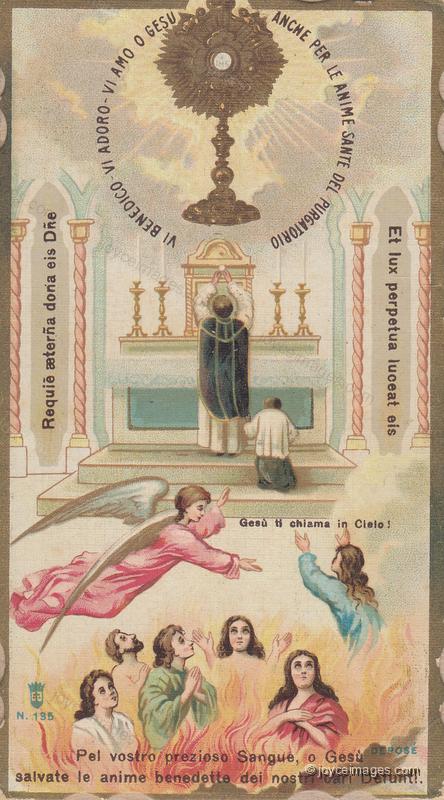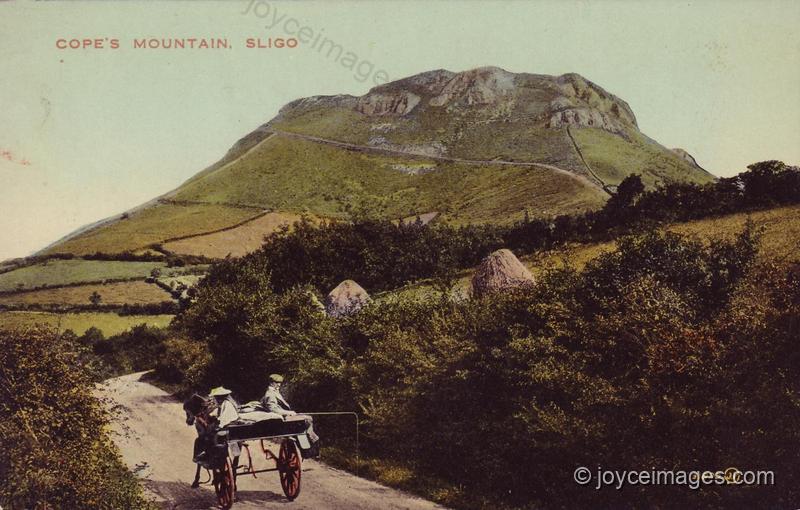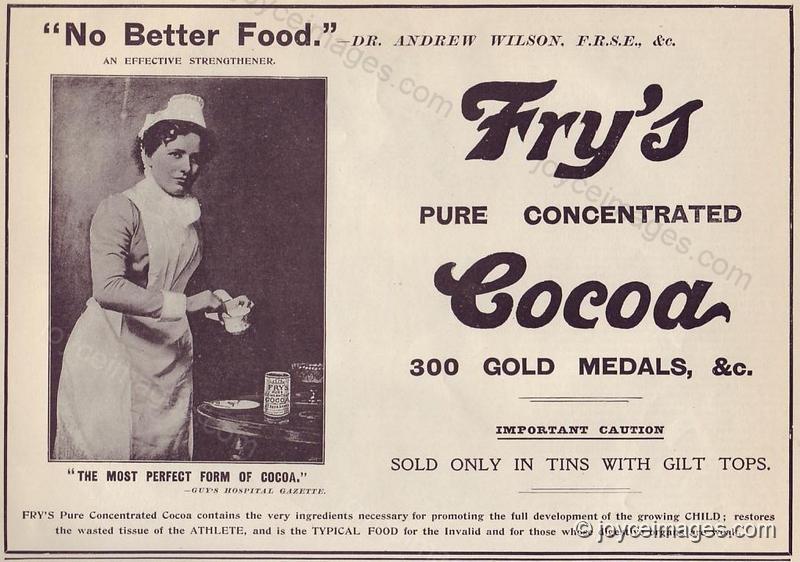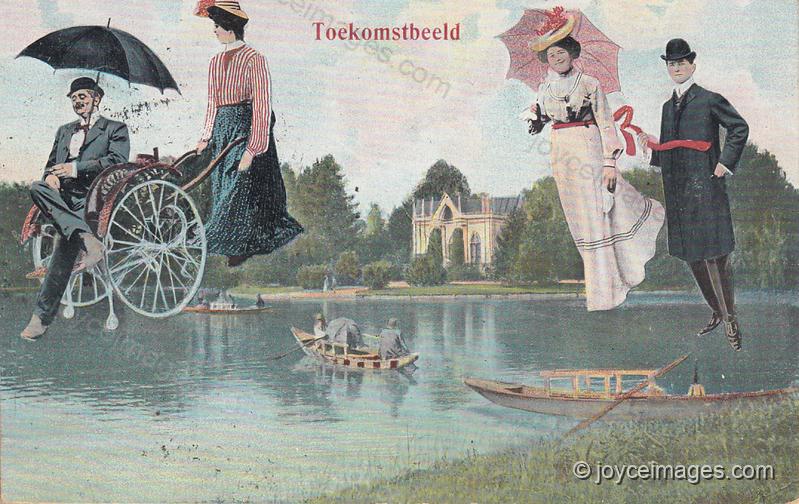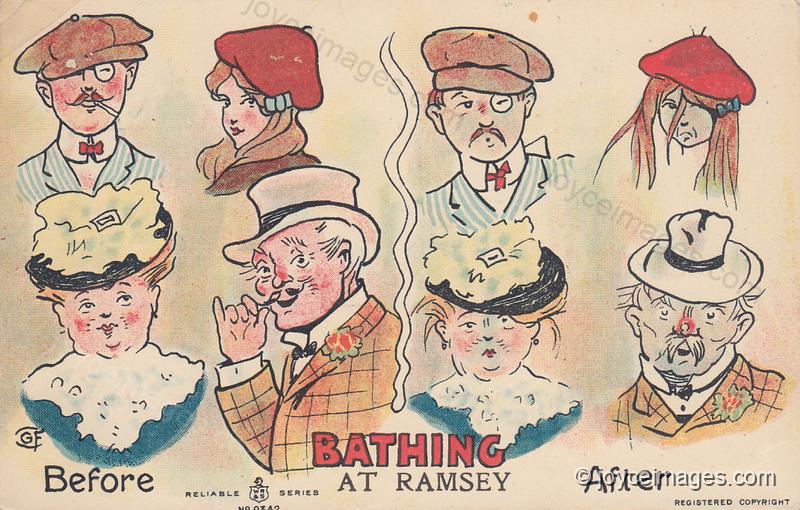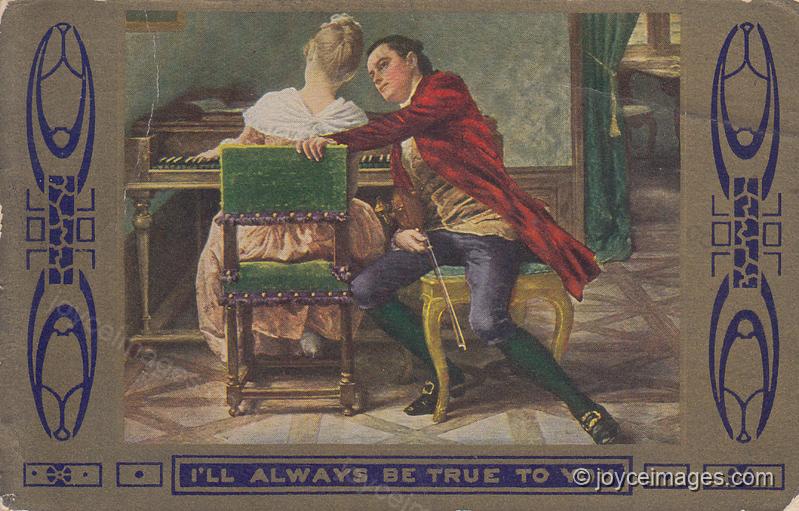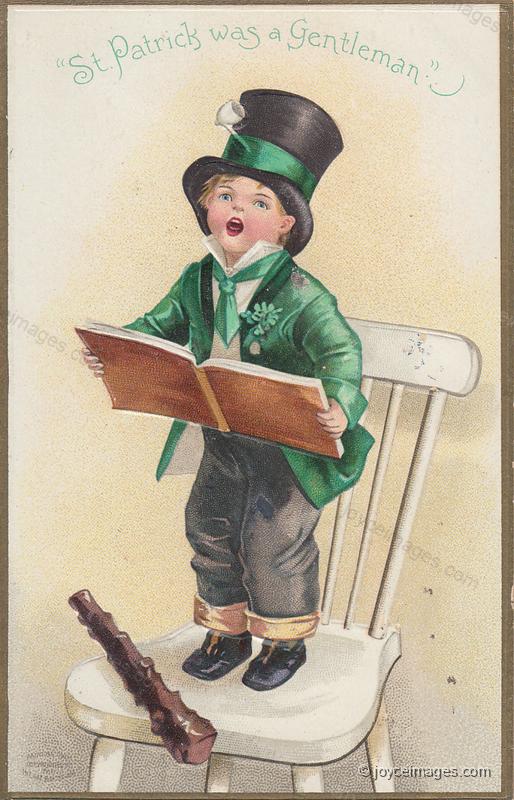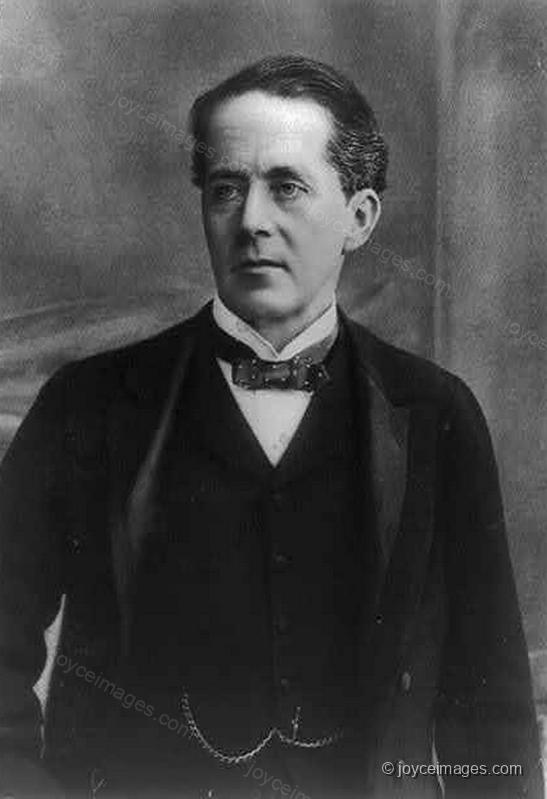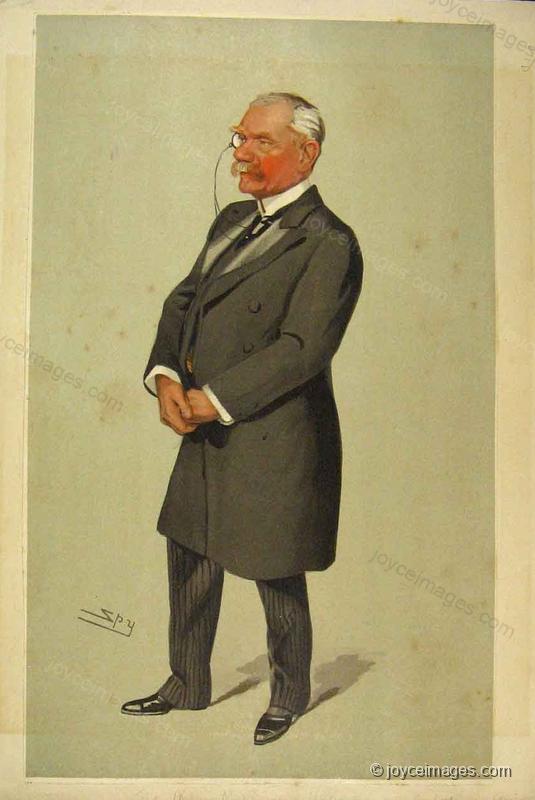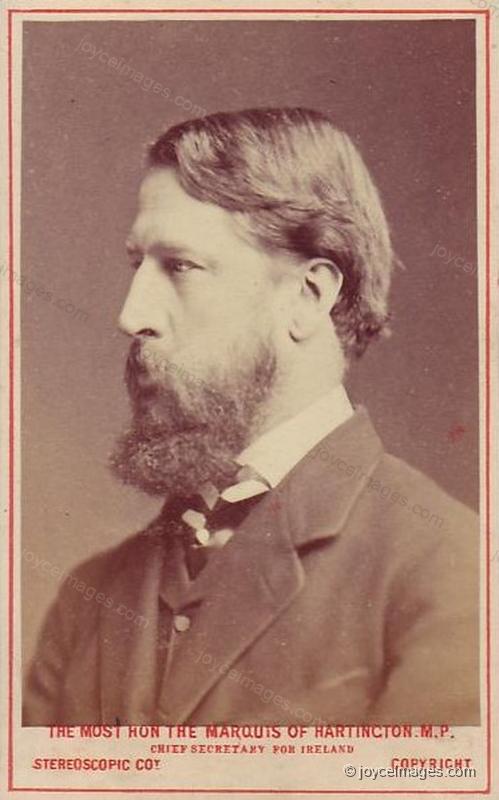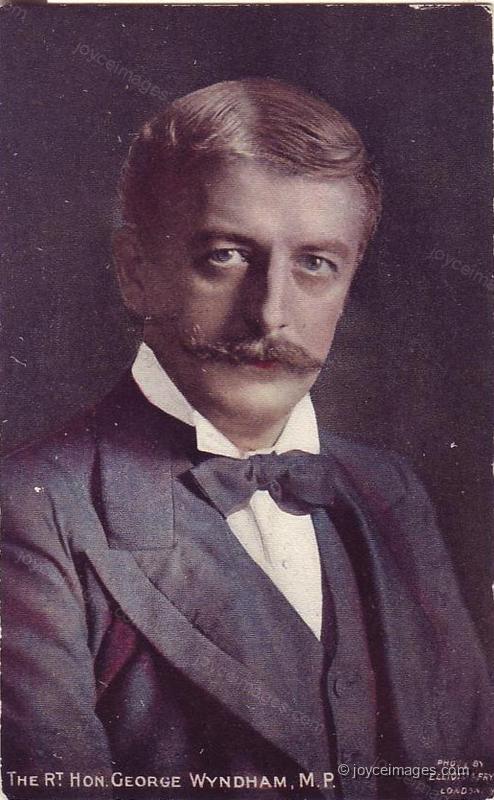"the grasswidower in question, who appeared to be glued to the spot, didn't appear in any particular hurry to wend his way home to his dearly beloved Queenstown" (U16.1626)
"and it was highly likely some sponger's bawdyhouse of retired beauties where age was no bar off Sheriff street lower would be the best clue to that equivocal character's whereabouts for a few days to come, alternately racking their feelings (the mermaids')" (U16.1628)
"with sixchamber revolver anecdotes verging on the tropical calculated to freeze the marrow of anybody's bones and mauling their largesized charms betweenwhiles with rough and tumble gusto to the accompaniment of large potations of potheen" (U16.1631)
"and the usual blarney about himself for as to who he in reality was let x equal my right name and address, as Mr Algebra remarks passim." (U16.1635)
"At the same time he inwardly chuckled over his gentle repartee to the blood and ouns champion about his god being a jew." (U16.1637)
"People could put up with being bitten by a wolf but what properly riled them was a bite from a sheep. The most vulnerable point too of tender Achilles. Your god was a jew." (U16.1638)
"because mostly they appeared to imagine he came from Carrick-on-Shannon or somewhereabouts in the county Sligo." (U16.1641)
"- I propose, our hero eventually suggested, after mature reflection while prudently pocketing her photo, as it's rather stuffy here, you just come with me and talk things over. My diggings are quite close in the vicinity. You can't drink that stuff. Do you like cocoa? Wait, I'll just pay this lot.
The best plan clearly being to clear out, the remainder being plain sailing, he beckoned, while prudently pocketing the photo, to the keeper of the shanty who didn't seem to.
— Yes, that's the best, he assured Stephen to whom for the matter of that Brazen Head or him or anywhere else was all more or less." (U16.1643)
The best plan clearly being to clear out, the remainder being plain sailing, he beckoned, while prudently pocketing the photo, to the keeper of the shanty who didn't seem to.
— Yes, that's the best, he assured Stephen to whom for the matter of that Brazen Head or him or anywhere else was all more or less." (U16.1643)
"All kinds of Utopian plans were flashing through his (B's) busy brain, education (the genuine article), literature, journalism, prize titbits, up to date billing, concert tours" (U16.1652)
"in English watering resorts packed with hydros and seaside theatres, turning money away," (U16.1654)
"duets in Italian with the accent perfectly true to nature and a quantity of other things, no necessity, of course, to tell the world and his wife from the housetops about it, and a slice of luck." (U16.1655)
"An opening was all was wanted. Because he more than suspected he had his father's voice to bank his hopes on which it was quite on the cards he had so it would be just as well, by the way no harm, to trail the conversation in the direction of that particular red herring just to." (U16.1658)
"The cabby read out of the paper he had got hold of that the former viceroy, earl Cadogan, had presided at the cabdrivers' association dinner in London somewhere. Silence with a yawn or two accompanied this thrilling announcement." ([16.1662])
"Then the old specimen in the corner who appeared to have some spark of vitality left read out that Sir Anthony MacDonnell had left Euston for the chief secretary's lodge or words to that effect. To which absorbing piece of intelligence ec/ho answered why.
—Give us a squint at that literature, grandfather, the ancient mariner put in, manifesting some natural impatience.
—And welcome, answered the elderly party thus addressed." (U16.1665)
Sir Antony Patrick MacDonnell (1844 - 1925) was an Irish-born British civil servant, much involved in the administration of India. He was Permanent Under-Secretary to the Lord Lieutenant of Ireland (1902–1908).
The Chief Secretary's lodge was in Phoenix Park.
—Give us a squint at that literature, grandfather, the ancient mariner put in, manifesting some natural impatience.
—And welcome, answered the elderly party thus addressed." (U16.1665)
Sir Antony Patrick MacDonnell (1844 - 1925) was an Irish-born British civil servant, much involved in the administration of India. He was Permanent Under-Secretary to the Lord Lieutenant of Ireland (1902–1908).
The Chief Secretary's lodge was in Phoenix Park.
The Chief Secretary for Ireland was a key office-holder of state in the British administration in Ireland. He was in theory #2 in Dublin Castle, an aide to the #1 Lord Lieutenant (= Viceroy). However, from the late 18c., the office frequently eclipsed the Lord Lieutenant's. The Chief Secretary managed the legislative business for the Government in the Irish House of Commons, in which he sat as an M.P. He operated in a manner similar to that of the Prime Minister in the British Parliament.
This CDV shows Spencer Cavendish, Marquess of Hartington, who was Chief Secretary for Ireland 1871 - 1874. His brother Lord Frederick Cavendish held briefly the position in 1882 and was assassinated during the Phoenix Park Murders.
This CDV shows Spencer Cavendish, Marquess of Hartington, who was Chief Secretary for Ireland 1871 - 1874. His brother Lord Frederick Cavendish held briefly the position in 1882 and was assassinated during the Phoenix Park Murders.
George Wyndham (1863 – 1913) was chief secretary of Ireland 1900 - 1905.
From Wikipedia: He was an English politician and also a man of letters, noted for his elegance, and one of The Souls. He was a great-grandson of Irish revolutionary Lord Edward Fitzgerald, whom he greatly resembled physically. He brought forward a devolution scheme to deal with the Home Rule question. He also successfully saw the significant 1903 Irish Land Act into law. This change in the law ushered in the most radical change in history in Ireland's land ownership. Before it, Ireland's land was largely owned by landlords; within years of the Acts, most of the land was owned by their former tenants, who had been subvented in their purchases by government subsidies.
From Wikipedia: He was an English politician and also a man of letters, noted for his elegance, and one of The Souls. He was a great-grandson of Irish revolutionary Lord Edward Fitzgerald, whom he greatly resembled physically. He brought forward a devolution scheme to deal with the Home Rule question. He also successfully saw the significant 1903 Irish Land Act into law. This change in the law ushered in the most radical change in history in Ireland's land ownership. Before it, Ireland's land was largely owned by landlords; within years of the Acts, most of the land was owned by their former tenants, who had been subvented in their purchases by government subsidies.
